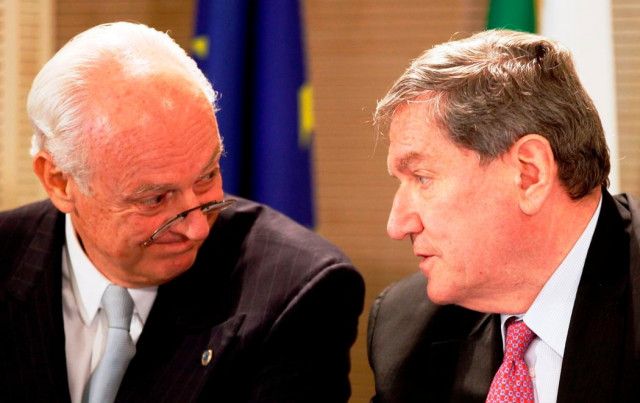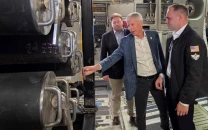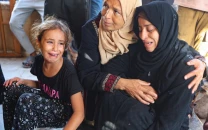US says Iran has a role in Afghan talks
The US recognises Iran has a role to play in resolving the Afghan conflict, US envoy Richard Holbrooke says.

An Iranian representative joined senior officials in the international contact group on Afghanistan in Rome to discuss progress on the transfer of security responsibility to Afghan forces, the first time Iran has sent an envoy to the talks.
"We were asked whether we had any problems with that and we said 'No,'" Holbrooke, the US special representative to Afghanistan and Pakistan, told a news conference.
"We recognise that Iran, with its long, almost completely open border with Afghanistan and with a huge drug problem... has a role to play in the peaceful settlement of this situation in Afghanistan. So for the United States there is no problem with their presence."
The United States has periodically accused Iran of providing some assistance to insurgents in Afghanistan. Tehran denies supporting militant groups there and blames the presence of Western troops for causing instability.
Iranian special representative Mohammed Ali Qanezadeh said on Monday the main problems in the region were insecurity, drug trafficking and the presence of foreign forces but he said the talks in Rome had been "fruitful".
Asked what kind of solution was likely to have the best chance of success, he said "I think regional, but that regional solution should be supported by the international community."
Mainly Shi'ite Muslim Iran was strongly opposed to the strict Sunni Taliban when they ruled Afghanistan from 1996 to 2001. Tehran has growing economic influence in the country, especially in western Afghanistan via cross-border trade. Holbrooke said the talks between the two sides at Monday's meeting did not extend to issues beyond Afghanistan.
"What we are discussing here is not affected by, nor will it affect, the bilateral issues that are discussed elsewhere concerning Iran," he said.
The United States fears Iran's civilian nuclear energy programme is a cover for producing weapons. Tehran denies it is developing nuclear arms and said it needs nuclear fuel-making technology to generate electricity.
Separately, Holbrooke sought to play down any suggestion that a Nato summit in Lisbon next month would specify areas that could be handed over to Afghan control in coming months.
"We want to make clear that in Lisbon there is not going to be any specific announcement on the number of provinces to be put into the transition category, we are not going to announce specific provinces, we are going to talk about the transition process," he said.
"Transition is probably the most important word being uttered here today."
Violence in Afghanistan has soared to its highest levels since the Taliban were ousted by U.S.-backed Afghan forces in 2001. More than 2,000 foreign troops have died since the start of the war, with more than half of those in the last two years.
U.S. President Barack Obama in December ordered 30,000 more troops to Afghanistan to beat back a resurgent Taliban but has also said troops will start coming home in July 2011.


















COMMENTS
Comments are moderated and generally will be posted if they are on-topic and not abusive.
For more information, please see our Comments FAQ